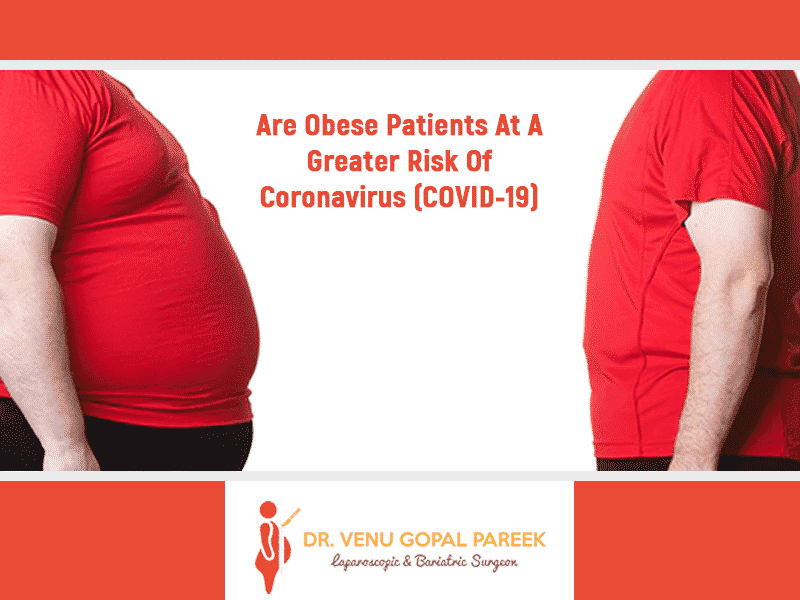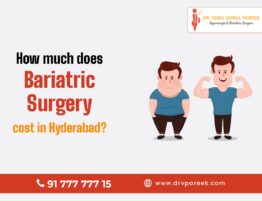
Coronavirus, or COVID-19, is rampant and there is no curative medicine yet. Hence, preventive measures are the way of life for now.
The majority of cases tested positive either had high blood pressure or heart disease or both. This discovery made the scientists realize that people suffering from medical illnesses are easy hosts for the virus. The picture in the USA is quite similar. A recent report by the Center for Disease Control and Prevention (CDC) shows that elders and people of all ages with severe underlying conditions, such as obesity are at a higher risk. According to the CDC report, diabetes, chronic lung disease, and cardiovascular disease were pre-existing in patients with COVID-19. The point to be noted here is that COVID-19 affects individuals who are suffering from medical conditions.
In India, overweight and obesity are contributing to the increased risk of multiple morbid conditions. Obesity paves the way to morbid conditions such as high blood pressure, heart diseases, stroke, cancers, diabetes, osteoarthritis, gout, and breathing problems. Thus, the co-morbid conditions brought about by obesity makes an individual fall prey to COVID-19. For more information about the unholy association of obesity and Covid-19 go through the COVID19 And Obesity- An Unholy Association.
Weight loss surgery (bariatric surgery) operationally reduces the size of the stomach so that the body absorbs less food that you eat. Common types of bariatric surgery are:
- Laparoscopic Adjustable Gastric Banding (also called the Lap-Band)
- Gastric Bypass
- Sleeve Gastrectomy
- Biliopancreatic diversion.
The patients who have undergone bariatric surgery might not be as lucrative hosts to COVID-19 virus when compared to those who have not had undergone surgery. This blog aims to shed light on Are Patients Who Underwent Bariatric Surgery At A Greater Risk Of Coronavirus?
Why do obesity patients get affected with Coronavirus?

Obesity is a risk factor or a condition which predisposes to COVID-19. It is scientifically known that obese patients have at least one obesity-related co-morbid medical condition such as:
- Type-2 diabetes
- Cardiovascular disease
- Hypertension
- Hyperlipidemia
- Chronic kidney disease
- Cancer or history of cancer
- Non-rheumatoid arthritis.
The prevalence of lung problems is higher in obese patients than in people with normal weight. Medical conditions such as asthma, sleep apnea, restrictive lung disease, and gastrointestinal problems associated with gastroesophageal reflux affect the lung functioning in obese patients.
Studies conducted across the globe on patients tested positive for Coronavirus have established that individuals having prior medical conditions, such as those mentioned above, are the ones who are easy prey for the virus.
What is bariatric surgery?

Bariatric surgery is also known as weight loss surgery which helps patients who are overweight to help lose weight. Weight loss surgery, coupled with regular exercise and adherence to healthy lifestyle ensures control of weight and thereby paving to a healthy life. Post-surgery, weight loss is often fast and then slows down over the next few years. Weight loss can be sustained for years after surgery.
Benefits of weight loss surgery on improved quality of life:

- Combined with a comprehensive treatment plan, bariatric surgery can often function as an effective tool to ensure long-term weight loss and improve your health.
- Bariatric surgery improves or resolves many obesity-related conditions such as type-2 diabetes, high blood pressure, heart diseases etc.
- As elaborated above, obesity brings about many other health conditions, which warrant the intake of drugs to control them. Post-surgery, the intake of medicines for co-morbid health conditions are significantly reduced.
- Obese people have difficulty in performing day-to-day activities or enjoy recreational activities. Obesity causes joint pains which prevent running, jogging, getting in and out of bed, sporting activities, playing with kids or pets etc. Post-surgery, one can perform all such activities.
- Significant weight loss through bariatric surgery can also pave the way for many other interesting choices for you, your family, and especially your health.
- Weight loss surgery often leads to an improvement in your overall quality of life. When you start losing weight, you can see improvements in other health conditions troubling you such as:
-
- Diabetes and high blood pressure can improve or disappear completely.
- The risk of heart disease, such as a heart attack is low.
- Sleep apnea often disappears, and CPAP therapy may no longer be needed.
- Symptoms associated with joint arthritis improve.
- GERD symptoms such as heartburn are cured.
- Urinary incontinence can be significantly improved.
- Infertility is treated with significant weight loss.
Cautions to be taken post-Bariatric surgery in light of Covid-19:
Bariatric surgery involves operationally reducing the size of the stomach, facilitating less food intake, thereby keeping the weight gain in check. However, less food intake means fewer nutrients which further leads to reduced prowess of the immune system and weak immune systems might not be able to put effective battle against bacteria or viruses. This does sound like a problem, isn’t it? Your surgeon can help you here.
Discuss at length with your treating surgeon as to the list of foods to eat post-surgery. Food recommended by your surgeon will be rich in nutrients, vitamins, and proteins which play a great role in boosting your immune system.
Apart from food, the following self-hygiene practices should be practised to fend off contaminants:
- Self-isolate yourself
- Clean the hands thoroughly, for at least 20 seconds, before eating or touching your face and after coming in contact with any common surfaces.
- Avoid being close to people. Use face masks and gloves when between people or when in a public place.
- When family members or roommates enter and leave the house, you might want to isolate them because they can transmit the virus even though they have no symptoms.
- Exercise: It might also be useful to review the current lifestyle, make changes to help you stay healthy and active. For example, you can start daily exercise, perform yoga, eat nutritious food, quit smoking/drinking/intake of illicit drug usage.
- The lockdown laid by the government may not allow you to go to a gym and exercise, but you could spend more time walking, jogging or running. These activities shall keep you fit and your mind positive. Walking a flight of stairs is also a perfect model of exercising.
- Recalibrate your diet: If you are already a fitness freak or avid fan of making healthy food by watching TV/online programs, now is an excellent time to deepen your relationship with healthy diet and exercise.
Conclusion:
Post-bariatric surgery, it is essential to maintain constant communication with your treating doctor and update him/her about the activities you are performing, food being taken, and the changes your body is undergoing. This helps your doctor in re-evaluating the recovery process in line with the COVID-19.
Boosting one’s immune system plays a crucial role in the fight against COVID-19. Getting bariatric surgery done surely does cut down on the food intake, but not necessarily mean cutting down the nutrients, proteins, and vitamins intake. Your treating surgeon shall make sure to design a healthy diet not only to keep a check on your weight but also to boost your immune system.
As elaborated above, the benefits of bariatric surgery outweigh any disadvantages. Undergoing bariatric surgery will eliminate the co-morbidity health conditions associated with obesity and thus reducing your chance of contracting COVID-19.
To find out more about the topic discussed and about bariatric surgery in particular, and to undergo bariatric surgery, please pick up your phone and contact Dr Venu Gopal Pareek at +91 91-777-77715.







